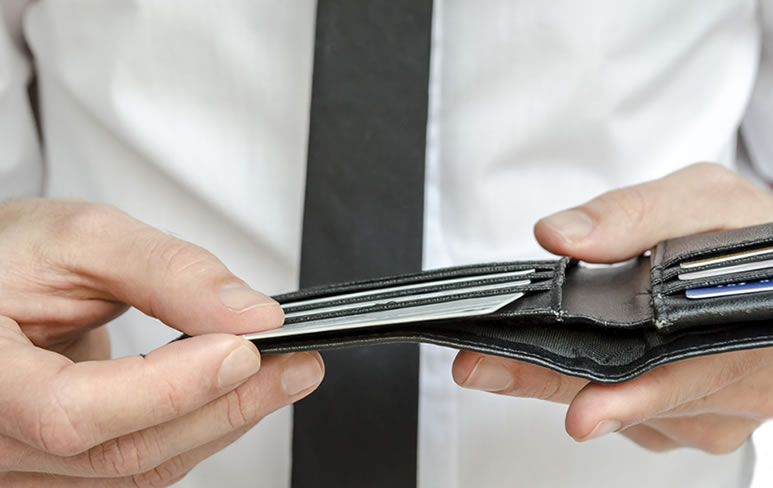So you probably have a few credit and debit cards floating around in your wallet or linked to your Apple PayTM. While you know the major differences between a credit card and a debit card, when should you use each? Here are five scenarios when using a credit card is better than using debit:
1. Scenario: You’re shopping online.
Use: Credit
If you’re shopping online or are using a card to pay for a bill at a restaurant, using a credit card is your best bet for protection against fraudsters and identity thieves. While debit cards offer some consumer protection in the case that it’s lost or stolen, most credit cards offer zero liability. “Any time you’re worried about your card’s safety, using a credit card is best,” says Matt Schulz, senior industry analyst at CreditCards.com. “That’s because if a bad guy uses your debit card, he’s using real money from your real checking account,” Schulz explains. “With a credit card, the situation is different. Just make a phone call and the charge is removed, with no money ever coming out of your pocket.”
2. Scenario: You want to protect your purchases.
Use: Credit
Besides protection against fraud, credit cards also offer purchase protections and extended warranties in case an item you buy using the card gets lost, stolen, or damaged, explains Sean McQuay, a credit card expert at NerdWallet. In some cases you might get similar coverage to a warranty purchased in-store. Extended warranties vary, so check to see what kind of coverage and types of purchases your credit card covers.
3. Scenario: You want to earn rewards.
Use: Credit
There may be debit cards out there that offer rewards, but they’re few and far between. “Credit card rewards are an important part of any savvy shopper’s arsenal,” explains McQuay. “Every time you swipe, you have the chance to earn 1 to 6 percent in rewards, depending on your card and where you’re shopping.” Credit cards with generous reward incentives allow you to rack up points you can use to book flights and hotel rooms for travel, gift cards to your favorite stores, or to redeem for cash back. Visit your credit union’s website or branch to find out what type of rewards programs are offered.
If you’re concerned about being “swipe happy” and putting too much on your credit card, aim to pay your credit card balance in full every month. Or, if you’re a credit union member, CardNavSM by CO-OP (available at participating credit unions) you can set limits on your spending, turn your card off if necessary, and set restrictions as to which types of merchants your card can be used.
4. Scenario: You’re traveling abroad.
Use: Credit
Besides earning rewards that you can use toward booking a flight or using toward a hotel room, some credit cards offer no foreign transaction fees when you are traveling internationally. And if your card gets lost or stolen during your trip, a credit card offers stronger fraud protection. For added security, make sure you travel with a chip-enabled card.
5. Scenario: You want to build credit.
Use: Credit
Having good credit is essential to your life as a consumer and affects your ability to say, take out a car loan or get approved for a mortgage, or in a huge way. Part of building credit is to use a credit card responsibly by paying your bills on time and staying within the ideal credit utilization ratio, which is the balance on your card compared to the limits on all your cards combined.
If you have no or bad credit, one thing you can look into a secured credit card, which is part debit card and part credit card.
Depending on what the scenario is, you may find it better to use a credit card versus a debit card. No matter which card you use, it’s always a good idea to make sure you are spending responsibly and that your info is safeguarded.
Read full article here: www.co-opcreditunions.org


